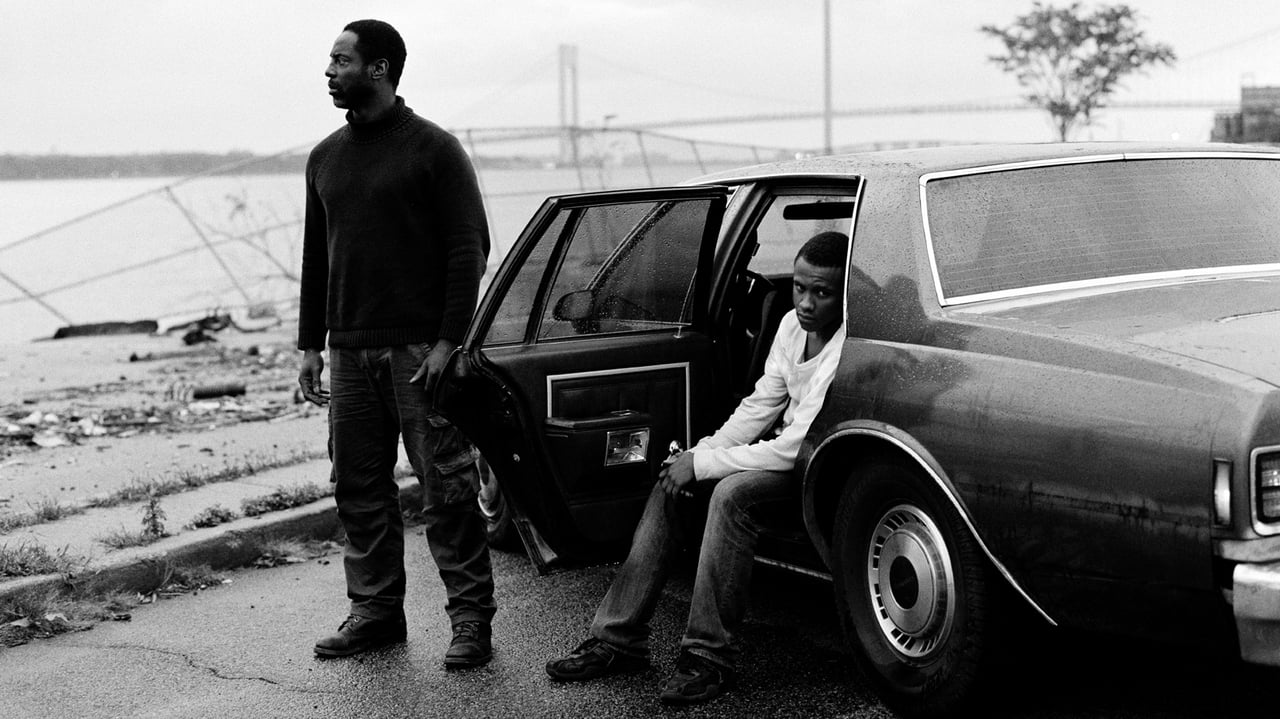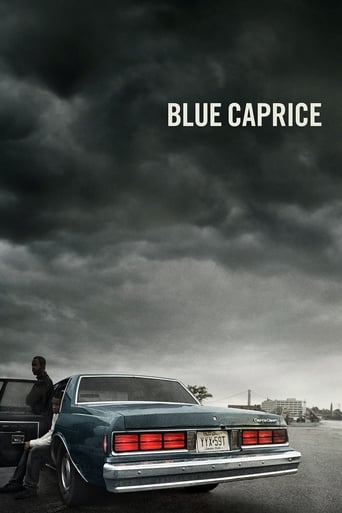

Why so much hype?
... View MoreStylish but barely mediocre overall
... View MoreGreat visuals, story delivers no surprises
... View MoreBeautiful, moving film.
... View MoreI remember when this was happening.People were scared to go outside,we were constantly looking over our shoulder's, terrified..there seemed to be no rhyme or reason why these killings were happening.While the movie may have seemed slow at some points,it was interesting to get an idea of what was really going on inside the minds of these murderers.
... View MoreThe film begins where our two beltway killers meet and slowly become one in their hate and lust for murder. It is entirely speculative in its dialogue and development. The one thing I liked is that it was not acted like some Charlie Manson crazed mass killer. Nevertheless, the characters never really reach a believable characterization of the type of anti social personality disorder that makes it possible to behave in such a way. I would suppose that it would be hard for such a young writer to lose himself in such a mind as that.The editing of this film is laughable and there really is no rhythm to the cutting, it jumps around which makes me think that the director was not experienced enough to get enough coverage. There is a lot of running through the forests, proclamations about why people are no good, but none of which have any impact or gives the feeling of menace. In fact, menace is lacking in every part of this film. Any thought that there would be a payoff for the time spent watching this movie is lost with a uninteresting and boring final scene that could have been cut from the film without any consequence. I say skip this one...
... View Moreperfect set up. done terribly, not exciting, no climax, fizzles out, feeble attempt, avoid all gore and action, continuity problems. .not good .rubbish .boring .unenjoyable .pointless .waste of time .meh .dont bother.........perfect set up. done terribly, not exciting, no climax, fizzles out, feeble attempt, avoid all gore and action, continuity problems. .not good .rubbish .boring .unenjoyable .pointless .waste of time .meh .dont bother........perfect set up. done terribly, not exciting, no climax, fizzles out, feeble attempt, avoid all gore and action, continuity problems. .not good .rubbish .boring .unenjoyable .pointless .waste of time .meh .dont bother.........perfect set up. done terribly, not exciting, no climax, fizzles out, feeble attempt, avoid all gore and action, continuity problems. .not good .rubbish .boring .unenjoyable .pointless .waste of time .meh .dont bother
... View MoreThe Beltway sniper attacks was one of the first mainstream news stories I remember quite vividly as a child (with September 11th excluded). I was six when they occurred and it was right around that time when I began to become interested in mimicking what my parents did. So, naturally, I'd sit in front of the TV with my dad at around six at night and watch the news. I remember hearing the words "sniper," "gas station," and "people shot" in the same news story and being absolutely petrified of gas stations from that moment on. I didn't know these shootings took place in Virginia, Maryland, and Washington D.C., not in Illinois where I had lived. I remember going to the grocery store with my mother one day and stopping for gas beforehand, right around the time when the snipers were on their killing spree. I was so petrified and paranoid that once we stopped at the pump for gas, I got on the floor of the backseat of my mother's Bonneville Pontiac and began crying and screaming, imploring my mother to come back inside the car and drive away. Garbled announcements on the loud-speaker at the local Speedway scared me even more, and I remember never being more scared in my life. I seriously felt as if I was going to die.Such memories came back while watching Alexandre Moors' directorial debut Blue Caprice, a film that, eleven years later, makes a commendable attempt to profile the two shooters behind the sniper attacks and show the brainwashing of a minor who happened to come into the presence of a dangerous man with a disregard for humanity. The dangerous man was named John Allen Muhammad, with the minor named Lee Boyd Malvo, both of whom were arrested and found guilty of committing random murders through the Virginia, Maryland, and Washington D.C. area using a sniper-rifle fired discretely from the trunk of their blue Chevrolet Caprice.It would seemingly be accurate to state that the public may need a pretty hefty reminder about this mass murder in America. What seemed to captivate us and rock our lives has now gone on to live in the shadows of obscurity, remembered by few. The outcome, or the killers for that matter, I believe, is a little known fact today and thankfully Moors has not only made a movie about the subject matter but a great movie about the subject matter, quite possibly earning the title of the best horror film of 2013.John is played by a fantastic Isaiah Washington, while Lee is portrayed by Tequan Richmond, an actor just a bit older than Malvo was during the time of the murders. We open by seeing the listless life of Lee, an abandoned soul picked up and cared for by a man named John, who will end up serving as the boy's father figure (to the point where he is actually referred to as "father" and "dad"). John has an agenda, a violent, soulless one. One that is predicated off of teaching random people a lesson.The film chronicles the Beltway sniper attacks from a psychological point of view. One that exhibits the cause-and-effect of Lee's transformation from a lost, impressionable child to a violent, and sick-minded individual. This point of view is a courageous one for first-time director Moors and first-time writer R.F.I. Porto. The film shows the way John picked up Lee at just the right time in his life, when he had no one, and gave him someone - a violent, deeply disturbed person with a frighteningly unpredictable agenda.There are issues, however, to Moors and Porto's portrayal of the shooters' actions. For one, we never quite get inside the head of John, learning his true motives or his actual thought-process behind what he believes. There doesn't seem to be a method to his madness. Perhaps this is because the two filmmakers didn't want to jump to conclusions on what the man was inherently thinking at the time, but if you're going to make a film depicting the events that happened before a devastating line of mass murders, you might as well try and offer a potential motive. Several have been tossed around in this case, from mental illness, to religious beliefs, etc, but like with most mass shootings and murders, there is never a fine conclusion.The other issue I see is a smaller one and that's the shooting sequences themselves. There is one we actually see from start to finish, involving the blue Caprice being parked in a department store parking lot with it's rear bumper facing the store. Lee ready to fire inside the trunk, looking through the scope with the sniper's end barely outside the hole in the trunk and John ready to speed away. We watch through Lee's scope, as he unsteadily moves the gun around, seeking his next victim, almost settling for a black man on a cigarette break before settling on a man in a beige suit with his back turned to the store. This scene is suspenseful and beautifully captured, only making one wish the last half of the film could've had more of a suspense focus.But when you see how intimate, careful, and lyrically staged everything else in Blue Caprice is, more and more of Moors' vision becomes clear and dominant over the lacking suspense aspects that, in the end, would be fine for another film. For the first film on a case that rocked three states and killed and injured many, this is a remarkably solid film, with great performances from Washington and Richmond and writing and directing that proves nothing but indicative of future potential. Using actor and filmmaker James Rolfe's analogy for something impossible, "if a blue moon occurs on Friday the 13th and all the planets align" this film will find a way in high school and college psychology courses.
... View More